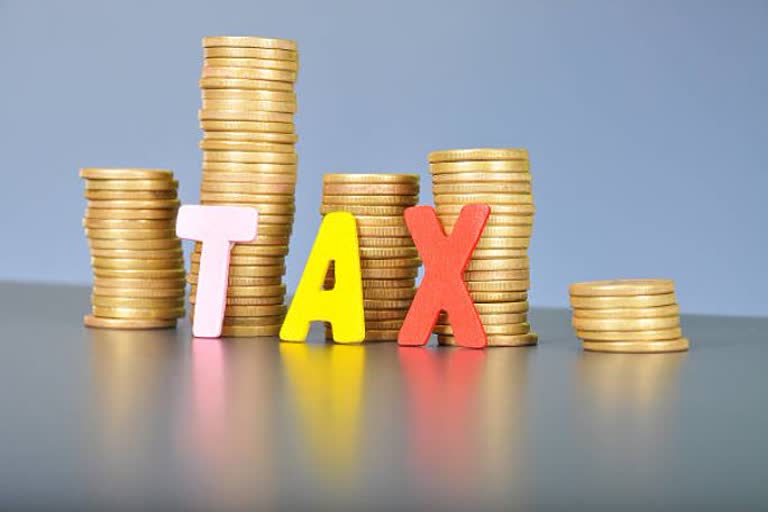Hyderabad: The Budget has proposed certain amendments impacting the transactions carried by Individuals or HUF in respect of remittances outside India.
The Budget has proposed a painful provision for the students and their parents as all of they are required to comply with TCS (tax collected at source) widening the base under section 206C of the Act when the remittance is planned for the purpose of education and accommodation expenses of children.
Certainly this is cumbersome for many of the parents to follow and is also a financial strain on them as they search for resources every time for sending the money to the children particularly when US$ or Euro currency is at its high now.
Let us examine its implications and impact on cash flow additionally.
As per the amendment to section 206C of the Act, seller of currency (authorized dealer) shall collect at 5% in addition to the value of FC to be remitted outside India. However, if the aggregate amount in a financial year does not exceed Rs.7 (seven) lakhs in a financial year in aggregate.
In other words, the buyer of currency is required to pay an additional amount@ 5% on the value of currency being remitted outside under LRS (liberalized remittance scheme) for education or any other purposes as permitted under LRS policy of the RBI.
Under the said LRS an individual is permitted to remit upto a sum of US$ 2,50,000 in a financial year for meeting expenses towards travelling, medical treatment, education, as gifts, donations, maintenance exps of close relatives.
Further the amount remitted as above can also be invested in shares, debt instruments and immovable properties abroad by the recipients.
Read more:Lotteries to attract 28% GST from March 1
As a result of this TCS at 5% on remittances exceeding Rs.7 lakhs (which is equivalent to US$ 9,790 apprx (conv at Rs.71.50 per dollar). Though the LRS is permitting huge sum, the TCS introduced will certainly check such remittances hereafter as each remittance in excess of Rs.7 lakhs in aggregate in a financial year, is saddled with 5% levy of TCS.
Assuming an individual is required to remit a sum of US$ 1,00,000 in a financial year sourced through own money or loans borrowed from bank, the said individual is required to pay an additional amount of US$ 5,000 under the new proviso being introduced now which is certainly painful amount.
However, the amount paid under TCS as above is allowed credit when the said individual declares his total income under the provisions of Income-tax Act which in other words reduce advance tax remittance if there is a tax commitment.
Hitting overseas tours, the proviso 206C also proposed to levy 5% as TCS on the payments to Overseas tour programme operaters. The operator shall mandatorily collect 5% more towards TCS and remit to the govt account.
It is also important to state the proviso does not state any relaxation in the case of remittances out of bank loans borrowed for education or medical needs genuinely out of necessity.
TDS on dividend under section 194:
As we have discussed earlier, now the dividends received are taxable as any other income in a year. However, such dividends are subject to TDS at 10% if the amount of dividend exceeds Rs. 5,000 and similar stipulation is also proposed for dividends received from investments in mutual fund units.
TDS on Interest under section 194A:
As earlier, the interest received from banks, societies shall be subject to TDS at 10% as per the table below:
| Interest received from | TDS at | No TDS upto |
| Banks | 10% | Rs.40,000 (when payee is senior citizen it is Rs.50,000 |
| Coop Societies (banking) | 10% | Rs.40,000(when payee is senior citizen it is Rs.50,000) |
| Post office deposits | 10% | Rs.40,000(when payee is senior citizen it is Rs.50,000) |
| All others | 10% | Rs.5,000 |
It is important to note that those having no taxable income in a year, they may submit a declaration to the deductor (15G/15H as may be applicable) in the beginning of the financial year (in the month of April) for non recovering tax from interest due or accrued on deposits.
Buying of Flat / House / Commercial space
Usually individuals having no business income are not required to comply with TDS in almost all transactions except the following:
a. When you purchase flat or house or commercial space from a resident transferor, you are required to hold 1% towards TDS out of the consideration and is to be remitted to the Govt account within thirty days from the date of deduction at the time of registration of property in a special challan prescribed for this purpose in 26QB duly mentioning the PANs of both buyer and seller.
The seller would get credit for the tax recovered from the consideration, in his return when it is filed. This is applicable when you buy flat or villa or commercial space. The TDS at 1% shall be effected as and when the consideration is paid in instalments from time to time.
However, if the total consideration agreed for the property is below Rs.50 lakhs, there would be no TDS.
b. When the buyer is resident in India and seller is NRI, the TDS shall be cumbersome . The buyer shall request NRI to make an application to ITO in international section for obtaining a certificate as to the amount of TDS and the said TDS shall be recovered from the amount payable for the property being acquired from NRI.
Further there is no threshold exemption of Rs.50 lakhs when you acquire it from NRI.
Failure in complying with the above would land in penal consequences apart from financial burden.
(Article by Sambasiva Rao Gollapudi)



